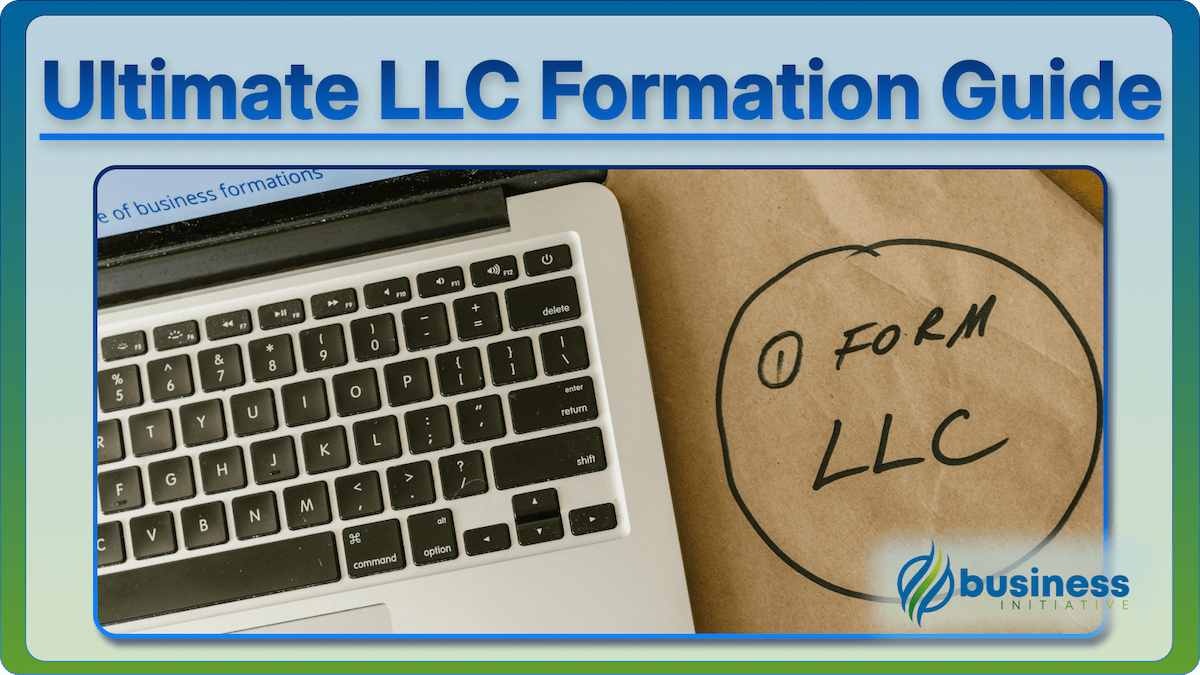You just formed your business.
But compliance doesn’t stop at formation. You have deadlines. Reports to file. Fees to pay. Requirements to meet.
Miss one deadline. Face penalties.
Lost good standing. Fines. Legal problems. Business disruption. Reputation damage.
This calendar keeps you compliant.
Month-by-month deadlines. Critical filings. Required reports. Fee schedules. Compliance reminders.
Read this. Set up your calendar. Stay compliant from day one.
 Key Takeaways
Key Takeaways
- Your first year of business has specific compliance deadlines that vary by state and entity type—missing them can result in penalties and loss of good standing
- Most states require annual reports or statements within the first year, typically around the anniversary of your formation date
- Tax obligations begin immediately—you may need to file quarterly estimated taxes, obtain business licenses, and register for state taxes
- Compliance requirements include maintaining registered agent services, keeping business records, and meeting state-specific obligations
- Setting up a compliance calendar and using professional services helps ensure you never miss critical deadlines in your first year
 Table of Contents
Table of Contents

Why This Matters
Compliance starts the day you form your business.
What happens if you miss deadlines:
- Loss of good standing
- Penalties and fines
- Legal problems
- Business disruption
- Reputation damage
What happens if you stay compliant:
- Maintain good standing
- Avoid penalties
- Protect your business
- Build credibility
- Peace of mind
The solution: A compliance calendar. Track deadlines. File on time. Stay compliant.
Month 1: Formation
Your first month focuses on formation and initial setup.
Week 1: Formation Filing
What to do:
- File Articles of Organization or Incorporation
- Pay filing fees
- Receive formation confirmation
- Record filing number
Deadlines:
- File formation documents (immediate)
- Pay filing fees (with filing)
Why it matters: Formation is the foundation. Complete it correctly.
Week 2: EIN and Tax Setup
What to do:
- Apply for EIN (if not done during formation)
- Register for state taxes (if required)
- Set up tax classification
- Open business bank account
Deadlines:
- EIN application (as soon as possible)
- State tax registration (varies by state)
Why it matters: EIN is required for business operations. Tax registration is required in many states.
Week 3: Operating Agreement or Bylaws
What to do:
- Create Operating Agreement (LLC) or Bylaws (Corporation)
- Document ownership structure
- Set management rules
- Sign and store documents
Deadlines:
- Operating Agreement/Bylaws (recommended within 30 days)
Why it matters: These documents govern your business and protect your interests.
Week 4: Business Licenses and Permits
What to do:
- Research required licenses and permits
- Apply for business licenses
- Obtain industry-specific permits
- Register for local business tax (if required)
Deadlines:
- Business licenses (before operations begin)
- Permits (before operations begin)
Why it matters: Operating without required licenses can result in fines and shutdowns.
Pro tip: Professional formation services can help with EIN application and initial compliance setup. See our EIN guide for details.

Months 2-3: Setup
Your second and third months focus on ongoing setup and initial compliance.
Month 2: Initial Compliance
What to do:
- Set up registered agent service (if not done)
- File BOI (Beneficial Ownership Information) if required
- Set up compliance tracking system
- Create compliance calendar
Deadlines:
- BOI filing (within 90 days of formation for entities formed in 2024, or within 90 days of changes)
- Registered agent (required from formation)
Why it matters: BOI filing is a federal requirement. Registered agent is required in all states.
Month 3: Tax Planning
What to do:
- Determine tax classification
- Set up estimated tax payments (if required)
- Plan for quarterly taxes
- Consult with tax professional
Deadlines:
- Estimated tax payments (quarterly, if required)
- Tax classification election (if changing)
Why it matters: Proper tax planning prevents surprises and penalties.
Pro tip: BOI filing is critical. Missing the deadline can result in $500/day penalties. See our BOI guide for details.
Months 4-6: Operations
Your fourth through sixth months focus on ongoing operations and mid-year compliance.
Month 4: First Quarter Review
What to do:
- Review business operations
- Check compliance status
- File first quarter estimated taxes (if required)
- Update compliance calendar
Deadlines:
- First quarter estimated taxes (April 15, if required)
Why it matters: Quarterly tax payments help avoid penalties and large year-end bills.
Month 5: Mid-Year Compliance Check
What to do:
- Review all compliance requirements
- Check for any missed deadlines
- Update business records
- Plan for upcoming deadlines
Deadlines:
- Ongoing compliance maintenance
Why it matters: Regular compliance checks prevent missed deadlines.
Month 6: Second Quarter Review
What to do:
- File second quarter estimated taxes (if required)
- Review business performance
- Update compliance tracking
- Plan for second half of year
Deadlines:
- Second quarter estimated taxes (June 15, if required)
Why it matters: Consistent tax payments maintain compliance and cash flow.
Pro tip: Use a compliance tracking system. See our compliance dashboard guide for what to track.

Months 7-9: Mid-Year
Your seventh through ninth months focus on mid-year compliance and planning.
Month 7: Third Quarter Review
What to do:
- File third quarter estimated taxes (if required)
- Review compliance status
- Plan for year-end
- Update business records
Deadlines:
- Third quarter estimated taxes (September 15, if required)
Why it matters: Consistent quarterly payments maintain compliance.
Month 8: Annual Report Planning
What to do:
- Check annual report deadline
- Gather required information
- Prepare annual report
- Set reminder for filing
Deadlines:
- Annual report deadline (varies by state, often around formation anniversary)
Why it matters: Annual reports are required in most states. Missing them results in loss of good standing.
Month 9: Pre-Year-End Review
What to do:
- Review all compliance requirements
- Check for any outstanding items
- Plan for year-end filings
- Update compliance calendar
Deadlines:
- Ongoing compliance maintenance
Why it matters: Preparation prevents year-end compliance problems.
Months 10-12: Year-End
Your tenth through twelfth months focus on year-end compliance and planning for year two.
Month 10: Annual Report Filing
What to do:
- File annual report (if due)
- Pay annual report fees
- Update business information
- Confirm good standing
Deadlines:
- Annual report (varies by state, often around formation anniversary)
Why it matters: Annual reports maintain good standing. Missing them results in penalties and loss of good standing.
Month 11: Year-End Tax Planning
What to do:
- Review tax situation
- Plan for year-end tax filings
- Consult with tax professional
- Prepare for tax season
Deadlines:
- Year-end tax planning (before December 31)
Why it matters: Year-end planning optimizes tax outcomes.
Month 12: Fourth Quarter and Year-End
What to do:
- File fourth quarter estimated taxes (if required)
- Complete year-end compliance review
- Plan for year two compliance
- Update compliance calendar
Deadlines:
- Fourth quarter estimated taxes (January 15 of following year, if required)
- Year-end compliance review (before year-end)
Why it matters: Completing year-end requirements sets you up for success in year two.
Pro tip: Annual reports are critical. Missing them can result in loss of good standing. See our compliance failures guide for how to avoid problems.

Ongoing Requirements
Some requirements continue throughout the year.
Registered Agent Service
What it is: A registered agent receives legal documents on your behalf.
Requirements:
- Must have physical address in state
- Must be available during business hours
- Must forward documents promptly
Why it matters: Required in all states. Missing documents can result in default judgments.
Business Records
What to maintain:
- Formation documents
- Operating Agreement or Bylaws
- Meeting minutes (corporations)
- Financial records
- Tax records
Why it matters: Proper records are required by law and protect your business.
Tax Compliance
What to track:
- Income and expenses
- Estimated tax payments
- Business deductions
- State tax obligations
Why it matters: Tax compliance prevents penalties and audits.
State-Specific Requirements
What varies by state:
- Annual report deadlines
- Franchise tax requirements
- Business license renewals
- Industry-specific compliance
Why it matters: Each state has unique requirements. Know yours.
Pro tip: Professional registered agent services handle document receipt and forwarding automatically. See our registered agent guide for details.
Your Next Steps
Set up your compliance calendar. Track deadlines. Stay compliant.
This Week:
- Review this calendar
- Identify your specific deadlines
- Set up a compliance tracking system
- Create calendar reminders
This Month:
- Complete all Month 1 requirements
- Set up compliance calendar
- File BOI if required
- Register for state taxes
Going Forward:
- Review compliance calendar monthly
- Set reminders for all deadlines
- File reports on time
- Maintain good standing
Need help? Check out our compliance dashboard guide for tracking systems, our compliance failures guide for avoiding problems, and our formation mistakes guide for common errors to avoid.
Stay informed about business strategies and tools by following us on X (Twitter) and signing up for The Initiative Newsletter.
FAQs - Frequently Asked Questions About Compliance from Day One: A New Business Owner

What compliance tasks need to be completed in the first month after forming my business?
In month one, file formation documents, apply for your EIN, register for state taxes, create your operating agreement or bylaws, and obtain required business licenses and permits.
Learn More...
Week 1: File Articles of Organization (LLC) or Incorporation (Corporation), pay filing fees, and record your filing number.
Week 2: Apply for your EIN, register for state taxes if required, set up tax classification, and open a business bank account.
Week 3: Create your Operating Agreement (LLC) or Bylaws (Corporation) within 30 days to document ownership and management rules.
Week 4: Research and apply for all required business licenses and permits before starting operations.
When do I need to file my BOI (Beneficial Ownership Information) report and what happens if I miss it?
New entities typically must file BOI within 90 days of formation, and missing the deadline can result in penalties of $500 per day.
Learn More...
BOI filing is a federal requirement for most business entities and should be completed during months 2-3 of your first year.
The filing deadline is within 90 days of formation for new entities, making it one of the earliest compliance obligations to address.
Missing the BOI deadline can trigger $500/day penalties, making it one of the most costly compliance failures for new businesses.
Set up your compliance tracking system during month 2 to ensure this and all other deadlines are monitored.
What quarterly tax deadlines do I need to track in my first year?
Estimated tax payments are due April 15, June 15, September 15, and January 15 of the following year if your business is required to make quarterly payments.
Learn More...
Determine during month 3 whether your business needs to make quarterly estimated tax payments based on your tax classification and expected income.
First quarter estimated taxes are due April 15, second quarter June 15, third quarter September 15, and fourth quarter January 15 of the following year.
Consult with a tax professional during month 3 to set up proper tax planning and avoid surprises.
Consistent quarterly payments prevent large year-end tax bills and potential penalties for underpayment.
When is my annual report due in the first year and what happens if I miss it?
Annual report deadlines vary by state but are usually around the anniversary of your formation date—missing it results in loss of good standing and penalties.
Learn More...
Start planning for your annual report around month 8 by checking your state's specific deadline and gathering required information.
Most states require annual reports around the formation anniversary, though some use the calendar year or specific dates.
File your annual report by month 10 (or whenever your state's deadline falls), pay the required fees, and confirm your good standing.
Missing annual reports is the most common compliance failure for new businesses, so set multiple reminders well in advance.
What ongoing compliance requirements continue throughout the entire first year?
You must maintain a registered agent service, keep proper business records, stay current on tax compliance, and meet all state-specific requirements continuously.
Learn More...
Your registered agent must have a physical address in your state, be available during business hours, and forward documents promptly.
Maintain formation documents, operating agreement or bylaws, meeting minutes (for corporations), financial records, and tax records from day one.
Track income and expenses, make estimated tax payments on time, document business deductions, and meet state tax obligations throughout the year.
Each state has unique requirements for annual report deadlines, franchise taxes, license renewals, and industry-specific compliance that you must track.
What should I focus on in months 10-12 to prepare for year two of my business?
File your annual report if due, complete year-end tax planning before December 31, file fourth quarter estimated taxes, and update your compliance calendar for year two.
Learn More...
Month 10: File your annual report if it's due, pay fees, update business information, and confirm your good standing status.
Month 11: Review your tax situation, plan for year-end tax filings, and consult with a tax professional to optimize your tax outcomes.
Month 12: File fourth quarter estimated taxes (due January 15), complete a full year-end compliance review, and set up your compliance calendar for year two.
This preparation ensures a smooth transition into year two with all deadlines tracked and no compliance gaps.
Sources & Additional Information
This calendar provides general guidance for first-year compliance. Specific deadlines and requirements vary by state and entity type.
For compliance tracking, see our Compliance Dashboard Guide.
For avoiding compliance failures, see our Compliance Failures Guide.
For common mistakes to avoid, see our Formation Mistakes Guide.


